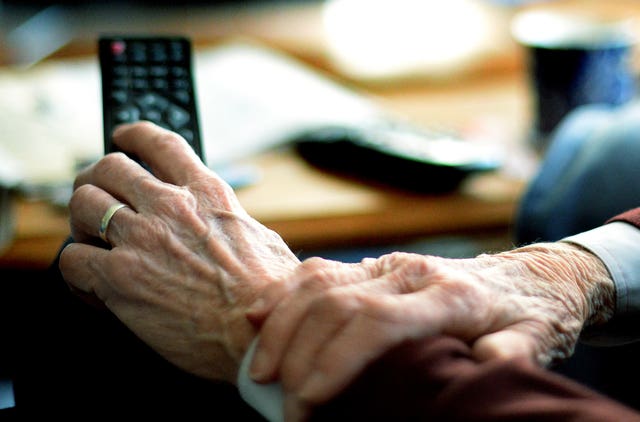
A month-long national lockdown in winter will take a heavy toll on people’s mental health, charities fear.
Paul Farmer, chief executive of mental health charity Mind, says it could be “the greatest test of our mental health this year”, not just for the public but for healthcare staff who are “working tirelessly, but may be struggling with their mental health too”.
Both Mind and Carers UK say the Government has to learn from mistakes in the first wave and make sure people can get help early on.
Mind has also urged the Government to support those who feel alone through a second lockdown in England, with Mr Farmer saying there is an “urgent need” for a winter mental health support package including in-person and online services.
Caroline Abrahams, Age UK’s charity director, said that many older people’s hearts would have sunk after confirmation that a second national lockdown will start on Thursday.

As many as one in three older people were already struggling with anxiety and depression plus loneliness brought on by the coronavirus pandemic and first lockdown, and now they face a further challenge, Ms Abrahams said.
She added: “Older people are typically extremely resilient, but this second period of prolonged disruption to daily life and enforced isolation will hit some very hard.
“Now we are worried about how they will cope these next few weeks, especially if they are living alone, are on a tight income and with little if any family or other support.”
Hobbies and gentle exercise may help some people who are trying to cope with the second lockdown but “for some this simply won’t be enough” to take the edge off them feeling low.
Getting in touch with a GP could help but it is important for people generally to try and look out for older people who could do with some friendly support, she added.
Brian Dow, deputy chief executive of Rethink Mental Illness, said: “The sense of social isolation and loneliness that lockdown exacerbates, compounded by significant changes to routine and restricted access to support networks and services, has a significant impact on people living with mental illness.
“It doesn’t mean a few blue days or that life feels a bit harder, it may trigger a relapse which can be take years to recover from.”
The charity has already spotted a “worrying” surge in the number of people seeking advice for self-harm and how to support someone experiencing suicidal thoughts.
Research by Rethink Mental Illness carried out during the first lockdown showed that 79% of people living with mental illness said their mental health was worse because of the pandemic.
It said that in the six months since the original lockdown began, more than 2.3 million people visited rethink.org for advice and information.
The worrying interest in their website included a 183% increase in the number of people seeking information about anxiety disorders and a 188% increase in the number of people seeking advice about how to support someone experiencing suicidal thoughts.
Mr Dow said it is “crucial” that access to services is maintained during this second lockdown and called on the Government to “step up and prioritise the nation’s mental health”.
Emily Holzhausen, of Carers UK, said that “people have really felt pushed to the absolute limit and in terms of their mental health and wellbeing” during the pandemic.
She added: “In non-Covid times carers are more lonely than the general population and that is because they do not have much social contact, they also do not have time because they are often caring – they are very time-poor, very tired.
“There is also the challenge that people don’t know what it is like to care and that can be difficult to share sometimes.
“Caring behind closed doors means that some people just do not understand – and this year has not been usual times.
“We are really quite worried about carers’ isolation.”
Many carers have had to provide more help during the pandemic which has “impacted negatively on their wellbeing,” she said.
The Government has pledged to write to everybody who is clinically extremely vulnerable to set out detailed advice for the second lockdown.


Comments: Our rules
We want our comments to be a lively and valuable part of our community - a place where readers can debate and engage with the most important local issues. The ability to comment on our stories is a privilege, not a right, however, and that privilege may be withdrawn if it is abused or misused.
Please report any comments that break our rules.
Read the rules here